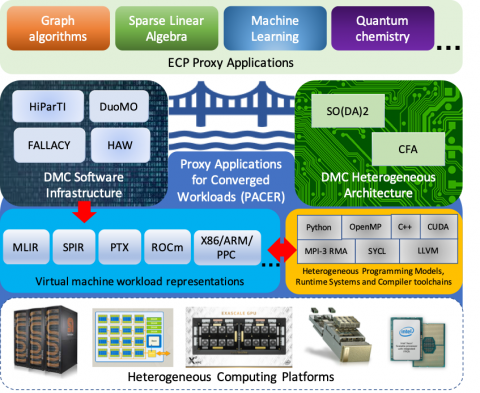Converged Applications Projects
Exploration of Domain-Aware Machine Learning for Grid Analytics (DAML-GA)
Principal Investigators: M. Halappanavar, A. Sathanur, V. Chandan, M. Jain, K. Gupta
Start Date: 03/20/2019
End Date: 09/30/2020
Investigate domain-aware machine learning methods to exploit the large amounts of unlabeled (unprocessed or raw) data coupled with small amounts of labeled (processed) data to enable efficient solutions to challenging problems in electric power systems.
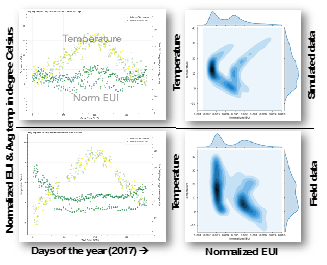
Data-Model Convergence Application Flows
Principal Investigator: D. Vrabie
Start Date: 03/28/2019
End Date: 09/30/2019
Assemble a portfolio of challenge problems and their DMC needs to inform prioritization of computing research and development of novel DMC capabilities.
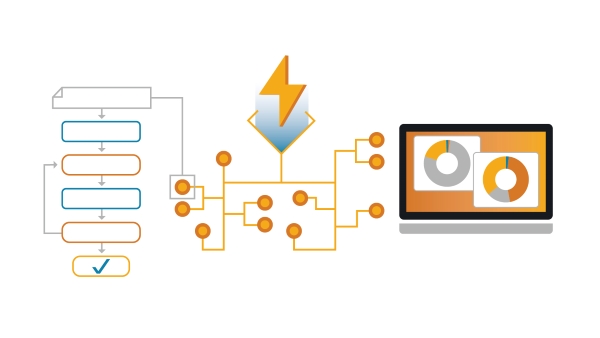
Holonic Approach Toward Data-Model Convergence
Principal Investigator: S. Choudhury
Start Date: 08/09/2019
End Date: 08/08/2022
Investigate real-time decision-making in wide-area sensor networks using a combination of centralized and at-the-edge execution.
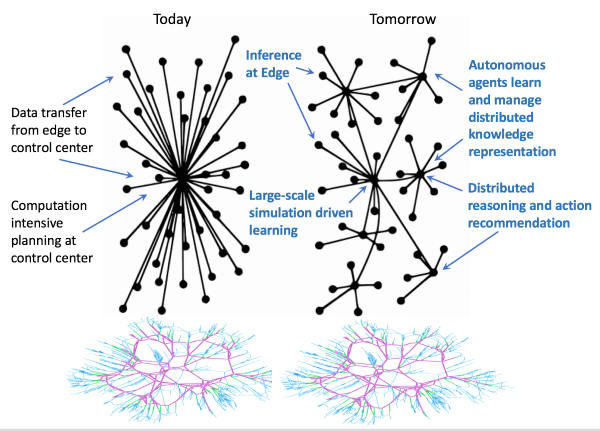
Theory-Driven Reinforcement Learning: Understanding Complexity in Protein Dynamics
Principal Investigator: B. Cannon
Start Date: 08/15/2019
End Date: 08/14/2022
Discover accurate dynamic models for protein expression and regulation of metabolism using chemical kinetic models and experimental data.
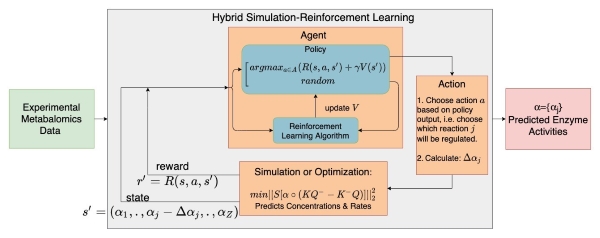
Causal Inference and Machine Learning Methods for Analysis of Security Constrained Unit Commitment (SCY0)
Principal Investigators: J. Holzer and J. Zucker
Start Date: 8/16/2019
End Date: 8/15/2022
Work to minimize the run time of the Security Constrained Unit Commitment (SCUC) solution algorithm and establish a technical foundation to support real-time power grid control.
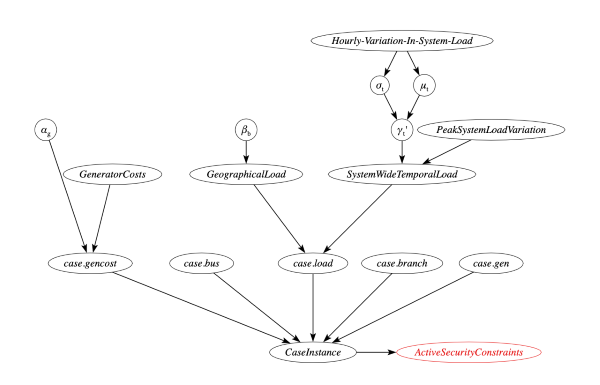
Domain Aware Deep-learning Algorithms Integrated with Scientific-computing Technologies (DADAIST)
Principal Investigators: J. Drgona, A. Tuor, S. Abhyankar, D. Zhang, E. Skamski
Start Date: 12/03/2020
End Date: 09/30/2023
Develop principled dynamics-based constrained deep-learning methods to modernize current convergent scientific-computing and machine learning methods.
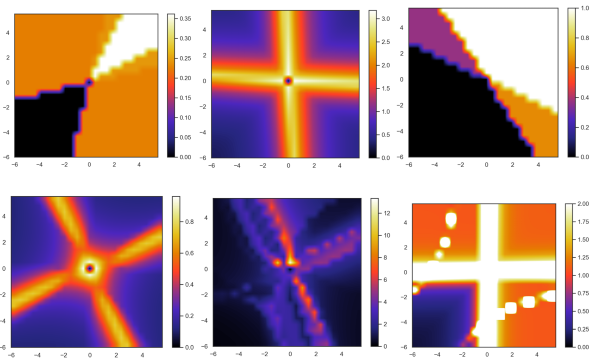
Proxy Applications for Converged Workloads (PACER)
Principal Investigator: S. Ghosh
Start Date: 12/03/2020
End Date: 09/30/2023
Enhance the vital role proxy application driven software-hardware co-design plays in driving innovation among the developments of applications, software infrastructure, and hardware architecture. Develop and curate proxy applications and serve as a bridge between DMC software infrastructure and hardware architecture projects.
